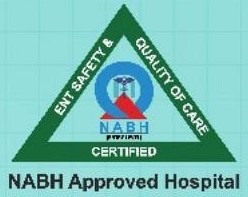What Are ‘Mystery Kidney’ Cases?
Many people trust routine blood tests to check their health. However, sometimes these tests do not show early kidney disease. These hidden problems are called “Mystery Kidney” cases. In these cases, kidney damage starts quietly. Yet, standard tests may not pick it up right away. Because of this, people may not know they have a problem until it gets worse. Early kidney disease detection is important for better health. But, mystery kidney cases can make this hard.
Why Routine Blood Tests May Miss Early Kidney Disease
Routine blood tests often measure creatinine to check kidney function. But, early kidney damage may not raise creatinine levels. As a result, the test can look normal even if there is a problem. Also, some people have more muscle, which can affect creatinine results. In addition, age and other health issues may change test results. Because of these reasons, hidden kidney problems can go unnoticed. According to the CDC, many adults with kidney disease do not know they have it.
Common Symptoms and Warning Signs
Early kidney disease often has no clear symptoms. Still, some warning signs may appear as the problem grows. For example, you may notice:
However, these signs can be mild or easy to miss. Therefore, it is important to pay attention to your body. If you notice any of these symptoms, talk to your doctor.
Advanced Diagnostic Methods
Because routine tests may miss early kidney disease, doctors use other methods for better detection. For instance, they may order:
Moreover, these advanced kidney function tests help find hidden kidney problems sooner. Early detection can lead to better treatment and outcomes. According to the National Kidney Foundation, using these tests can catch disease before it gets serious.
Prevention and Early Detection Tips
Although some kidney problems are hard to spot, you can take steps to protect your kidneys. For example:
Additionally, ask your doctor about advanced tests if you have diabetes, high blood pressure, or a family history of kidney disease. Early kidney disease detection can make a big difference.
When to See a Urologist
Sometimes, you may need to see a urology specialist for advice. For instance, if you have:
Furthermore, a urology specialist can guide you on advanced tests and treatment options. They can help you manage hidden kidney problems before they get worse.
Conclusion
In summary, ‘mystery kidney’ cases highlight why routine blood tests alone may not detect early kidney disease. Subtle changes in kidney function can go unnoticed, but advanced diagnostic tests and close attention to warning signs make early detection possible.
If you experience symptoms or have risk factors like diabetes or hypertension, don’t wait -seek expert care.
Consult the specialists at Hyderabad Urology and Andrology for personalised kidney health evaluation and advanced diagnostic screening to protect your kidneys before it’s too late.
Your kidneys deserve early attention — book your consultation today at Hyderabad Urology and Andrology.


